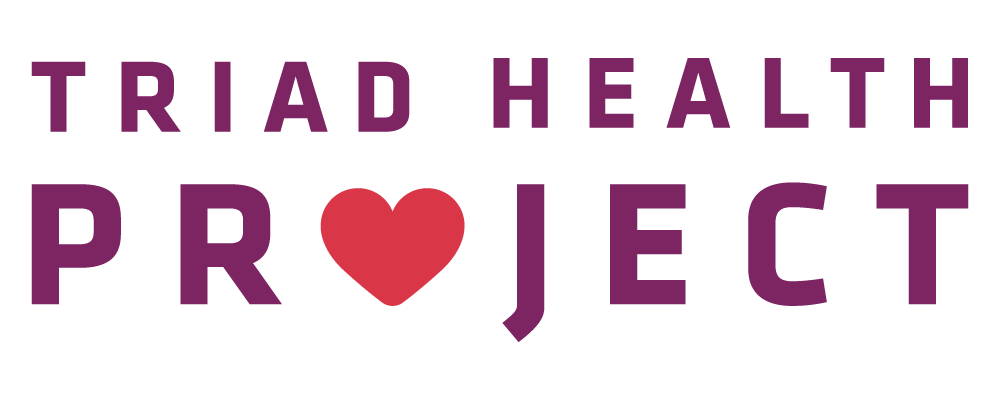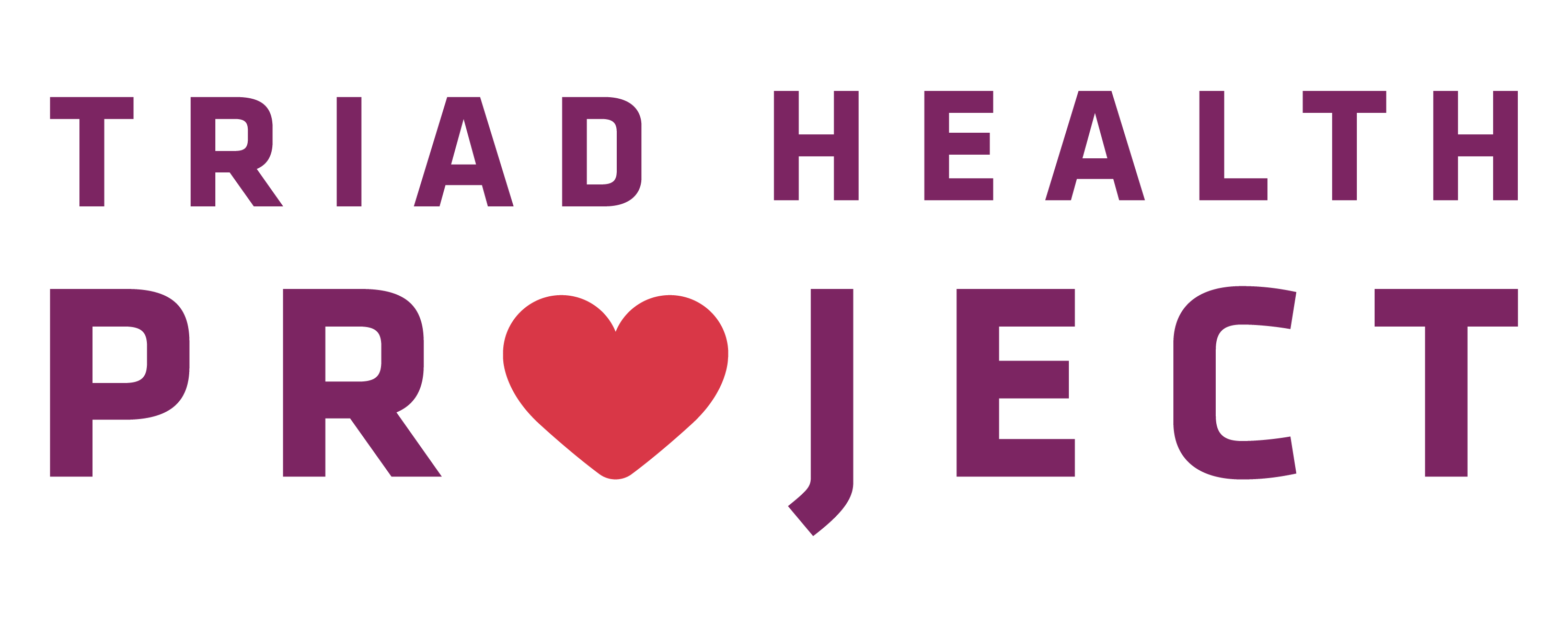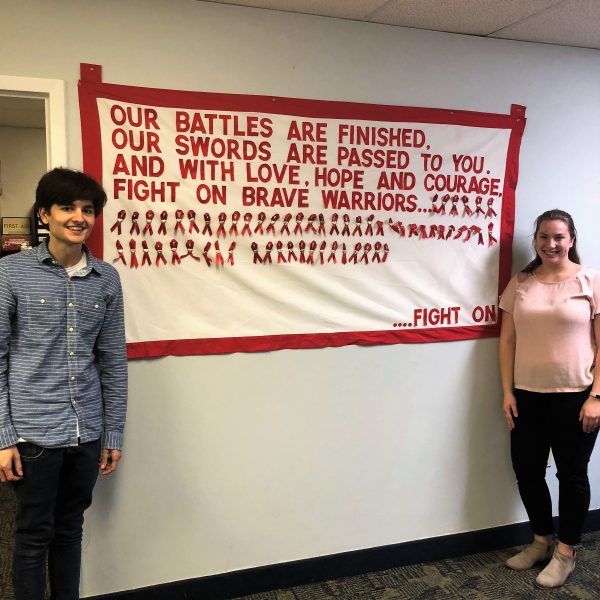A New Generation Confronts HIV
In the later months of 2018, I visited High Point’s Triad Health Project (THP) offices for the first time. I received the tour and became acquainted with the space, but I was not prepared for the emotional pulse that settled itself into my heart near the end of that particular day. It had been a great and productive workday (any time with Annie and Meagan is special), but the closing was particularly powerful in the way in which it reoriented my understanding of HIV activism. A little after 4 o’clock, I remember how Meagan pulled out a large quilt and explained to Annie and I how the names on the quilt constituted a larger art project that a student had created for THP a few years ago. I recognized so many names on the quilt; so many members of our Higher Ground family had signed their names. Automatically, I associated the quilt with the national NAMES Project AIDS Memorial Quilt, but the quilt billowing out into our hands and onto the High Point office’s floors at that moment was our very own THP version. It offered a story of THP’s past…and it also made me think about THP’s future.
We know HIV is no longer a death sentence. But that also means that the ways in which we advocate must change too. HIV has changed, so we must change the ways we fight it.

Specifically, as Annie, Meagan, and I were holding the quilt in the High Point offices, I saw how there were many names I knew from Higher Ground NOT on the piece of art. Their names were missing because they weren’t a part of Higher Ground yet at the time the quilt was made. In some cases, neither were these people HIV-positive yet. In moments like this, I am reminded that HIV is not simply some virus of the past, of the ’80s; it’s painfully current. New transmissions/acquisitions are occurring daily. HIV was an issue in the ‘80s and it’s an issue now. I imagine that for some folks involved in HIV activism, it can be hard not to think of HIV solely in a historical sense. There’s a tragic nostalgia attributed to it. In fact, it can be tempting to think about HIV as a plague of the ’80s and ‘90s in which a large group of people banded together to fight for medication and social change. When I first came to Higher Ground, I admit that I tended to think that I was interacting with folks impacted by a virus of a decade I wasn’t yet alive to see—some scary contagion of the ’80s that only some lucky ones survived. However, that’s just not always the case. That’s just a piece of the HIV story for some people, but not wholly relevant to others. With new HIV acquisitions in this decade, thinking about the virus as something solely of the past just isn’t appropriate.
New people, newly diagnosed, will come to the doors of THP and seek refuge at Higher Ground this month, this year, likely in years to come. New people will need THP. There’s little room for nostalgia when grasping that.

Yes, it’s so incredibly important to look back and see how far the fight against HIV has come. I often think back to the quilt moment with Annie and Meagan and reflect on how the three of us have never known a world in which HIV hasn’t been a major and prevalent epidemic. (Annie and I, born in the 1990’s, came into a world that had already defined and established rigid interpretations of HIV. Meagan, born slightly earlier in the ’80s, came into a world with even narrower ideas about the virus.) Nevertheless, the three of us were there in an office holding on to a quilt that had the names of people we love, people who have helped shape us…people who will always be in our hearts.
And there will be more people to shape us and change our lives—more people living with HIV who will learn to thrive with the virus until the epidemic has ended and a cure is found. It’s so important to look back, but equally important to look forward.
Until that day of a cure, new people will become involved in the fight against HIV. Young people like Annie, Meagan, and I will continue to join older generations of activists and use our voices. The older generations didn’t have to say ‘yes’ in letting us join in the fight, but they extended their hands and our perspectives and the ways in which we learn from the steps laid out before us by our mentors can get us all closer to a cure. Yes, the virus has changed—that’s something we can rejoice in. We know HIV is no longer a death sentence. But that also means that the ways in which we advocate must change too. HIV has changed, so we must change the ways we fight it.
New people will have their names added to quilts like the one at High Point. New people will need THP. But new people will also be activists in this fight, until soon a cure WILL be found.
By Chase Hanes, Manager of Higher Ground


